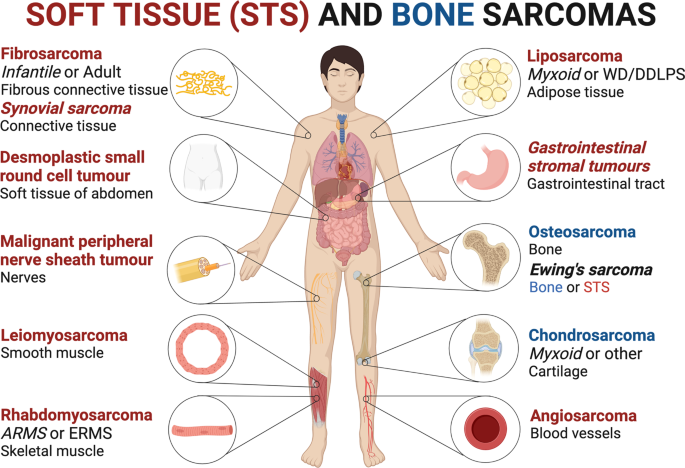What You Need to Know About Sarcoma Cancer

Introduction to Sarcoma Cancer
Sarcoma cancer is a rare form of cancer that arises from connective tissues, including bones, cartilage, fat, and muscle. Unlike more common cancers, such as breast or lung cancer, sarcomas account for only about 1% of all adult cancers, making them less familiar to the general public. Understanding sarcoma is crucial for early detection and treatment, as outcomes can significantly improve with prompt diagnosis.
Types of Sarcoma
Sarcoma is classified into two main categories: soft tissue sarcoma and osteosarcoma. Soft tissue sarcomas can develop in various locations, such as the limbs, trunk, or abdomen, and are further divided into subtypes like liposarcoma (fat tissue) and leiomyosarcoma (smooth muscle). Osteosarcoma, which primarily affects the bones, is particularly prevalent among teenagers and young adults.
Symptoms and Diagnosis
Symptoms of sarcoma can vary widely, depending on its type and location. Common signs include a noticeable lump or swelling, pain in the affected area, and sometimes bone fractures. Unfortunately, these symptoms can be mistaken for benign conditions, leading to delayed diagnosis. Health professionals often employ imaging techniques like X-rays, MRIs, or CT scans, followed by a biopsy, to confirm the presence of cancer.
Recent Advances in Treatment
Recent advancements in the treatment of sarcoma have shown promise. Surgical resection remains the primary approach, particularly for localized sarcomas. However, for cases that have metastasized, chemotherapy and radiation therapy are commonly employed. Newer treatments, including targeted therapy and immunotherapy, are being researched and have offered hope for patients with advanced disease. A recent study published in the Journal of Clinical Oncology highlighted the effectiveness of combining immunotherapy with traditional treatments, leading to improved outcomes for certain sarcoma patients.
Conclusion and Future Outlook
As research on sarcoma cancer progresses, the hope for improved treatment options grows. Increased awareness and better diagnostic techniques are critical in enhancing survival rates. With ongoing clinical trials and advancements in medical technology, there is optimism that sarcoma may eventually be viewed with the same awareness and urgency as other more prevalent cancers. For readers, understanding sarcoma cancer not only contributes to personal health awareness but also fosters a supportive environment for those affected by this rare disease.









